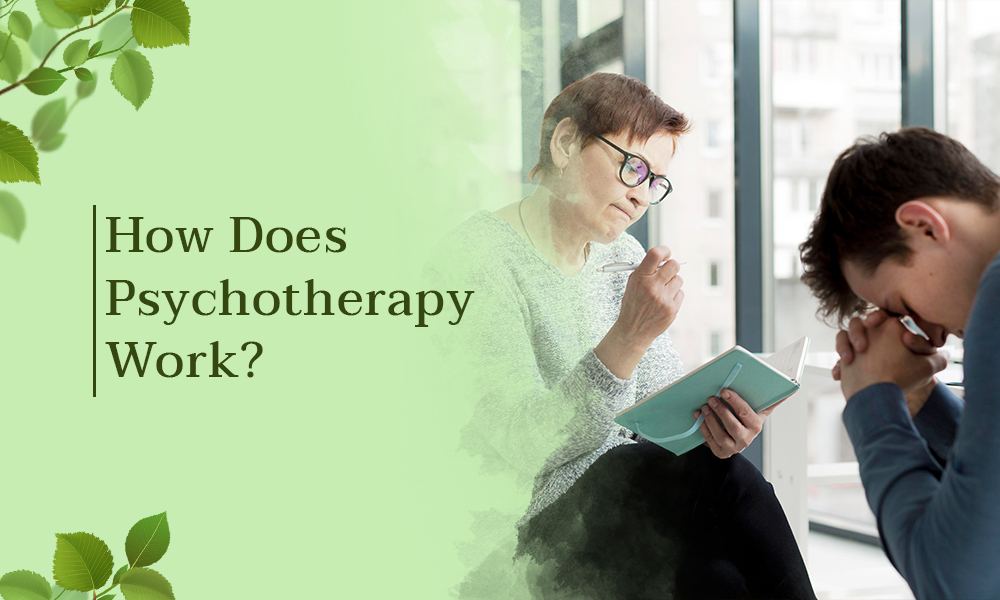- Jofa Tower 5th floor, SB-23, Block 13 C, Main University Rd, Gulshan-e-Iqbal, Karachi.
- +92 322 3746726
- tis@transformation.com.pk
How Does Psychotherapy Work?

What is Psychotherapy?
May 3, 2024
How can a psychologist help a child with autism?
May 15, 2024Welcome to the world of psychotherapy, where complexities of the human mind are met with loving advice from qualified specialists. There is no single explanation for how psychotherapy works because each therapeutic interaction is unique and tailored to the individual's needs. However, the foundation of life-changing and life-saving psychotherapy is a solid therapeutic relationship.
If you're interested in learning more about psychotherapy, you've come to the perfect spot. In this detailed guide, we'll look at the inner workings of psychotherapy, including procedures, advantages, and what to expect during a normal session.
Understanding Psychotherapy
Psychotherapy, also known as talk therapy, refers to a variety of treatment techniques aimed at helping individuals identify and change unhealthy emotions, thoughts, and behaviors. These emotions and thoughts can be associated with situations like:
. Relationship difficulties.
. Grief.
. Adapting to a new life situation or medical condition.
. Stress and coping issues.
Additionally, there may be a connection between them and behavioral and mental health diagnoses. Psychotherapy takes place with a qualified, licensed mental health professional, such as a psychologist or psychiatrist. It can offer you and/or your family help, education, and direction to improve your functioning and well-being.Psychotherapy can be used in combination with medication or other therapies, or as a standalone treatment.
Types of Psychotherapy
Many mental health professionals specialize in specific types of psychotherapy. Your specificdisease and/or circumstances will determine the sort of therapy you receive. Therapists may blend parts of many treatment approaches to better meet your requirements.
Cognitive Behavioral Therapy (CBT):
CBT aims to identify and modify negative thought patterns and behaviors that contribute to mental health problems including anxiety and depression. You'll begin to understand how your thoughts influence your behavior. CBT allows you to unlearn negative thoughts and actions while learning to acquire healthier thinking patterns and habits.
Dialectical behavior therapy (DBT):
DBT is a talk therapy based on cognitive behavioral therapy, tailored for individuals who experience extreme emotions. The primary goal of DBT therapists is to establish a balance between validation (acceptance) of your identity and issues, as well as the rewards of change. Your therapist will assist you in developing new skills for better emotion regulation. It combines individual and group therapy.
Interpersonal therapy (IPT):
IPTis a short-term form of treatment. It assists you in understanding underlying interpersonal difficulties that are troubling, such as unresolved sorrow, changes in social or professional responsibilities, disputes with others, and issues relating to others. It can teach you appropriate emotional expression and communication skills.
Psychodynamic therapy:
Psychodynamic therapy, founded on Freudian concepts, investigates unresolved conflicts and unconscious processes to promote self-awareness and healing. You'll work with a therapist to increase your self-awareness and change old habits so you can take greater control of your life.
Humanistic Therapy.
Humanistic therapy emphasizes personal development, self-acceptance, and the realization of one's full potential, often using techniques such as empathy and unconditional positive regard.
In addition to psychotherapy, mental health professionals may use the following therapies:
- Animal-assisted therapy entails working with dogs, horses, or other animals to provide comfort, aid communication, and help people cope with trauma.
- Creative arts therapy is the use of art, dance, music, and poetry to enhance talk therapy and communication.
- Play therapy is a type of therapy that uses play to help children recognize and express their emotions and experiences.
There are also different types of therapy depending on who’s taking part in the session. These include:
- Individual therapy is a one-on-one session with a mental health expert.
- Group therapy occurs when two or more persons engage in therapy with a mental health professional at the same time. Group therapy allows you to share your experiences and learn from others who have had similar ones.
- Marriage counseling or couple’s therapy is a type of treatment in which you and your spouse participate. Licensed Marriage and Family Therapists (LMFT) are specially trained to assist couples in identifying and resolving issues.
- Family therapy involves you and your family members, perhaps all of them or part of them. It can assist family members to enhance communication and overcome conflicts ranging from sibling envy to dealing with the death of a family member.
Benefits of Psychotherapy:
The benefits of psychotherapy extend far above symptom relief. Psychotherapy can address mental health issues at their core by doing the following:
- Improve your self-awareness and emotional intelligence.
- Improve coping skills and resilience.
- Improve relationships and communication.
- Promote personal progress and fulfillment.
Choosing a suitable therapist
People choose psychotherapy for a variety of reasons, and every individual is unique. Therapists should be trained to cope with a variety of scenarios, although some can address more particular needs.Finding the appropriate therapist is frequently a time-consuming process. Ask individuals you trust for referrals to therapists, whether it's your primary healthcare doctor, a friend, or a family member.You can also look up therapists online through local and state psychological associations.
Be sure that any therapist you’re interested in seeing is a state-certified and licensed mental health professional and that they treat your area of concern (for example, grief, depression, family therapy, etc.).
Conclusion
Psychotherapy is a highly effective technique for personal development and mental health recovery. While it can be overwhelming to acknowledge and seek help for a mental health condition or emotional difficulties in your life, you must do so. Psychotherapy can help you better understand and work through the roadblocks that are preventing you from living a full and healthy life.Psychotherapy enables people to have more full and meaningful lives by increasing their self-awareness, resilience, and coping skills. If you're ready to go on a path of self-discovery and healing, psychotherapy could be the key to realizing your full potential. Take the first step today and discover the transformational power of psychotherapy.




